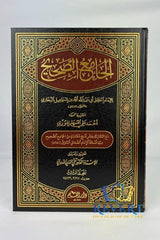It has been unanimously agreed that Imam Bukhari's work is the most authentic of all the other works in Hadith literature put together. The authenticity of Al-Bukhari's work is such that the religious learned scholars of Islam said concerning him: 'The most authentic book after the Book of Allah (i.e. Al-Qur'an) is Sahih-Al-Bukhari.'
The book covers almost all aspects of life in providing proper guidance of Islam such as the method of performing prayers and other actions of worship directly from the Islamic prophet Muhammad. Bukhari finished his work around 846, and spent the last twenty-four years of his life visiting other cities and scholars, teaching the hadith he had collected.
In every city that he visited, thousands of people would gather in the main mosque to listen to him recite traditions. In reply to Western academic doubts as to the actual date and authorship of the book that bears his name, scholars point out that notable hadith scholars of that time, such as Ahmad ibn Hanbal (855 CE/241 AH), Yahya ibn Ma'in (847 CE/233 AH), and Ali ibn al-Madini (848 CE/234 AH), accepted the authenticity of his book[8] and that the collection's immediate fame makes it unlikely that it could have been revised after the author's death without historical record
About Imam Bukhari
Imam al-Bukhari is one of the most eminent of those pious Scholars who gave endless bliss upon the Muslim Ummah. This is made manifest in this book of Ahadith an-Nabawi that Imam Al Bukhari compiled.
Imam al-Muhaddithin Hadrat Imam Abu `Abdullah Muhammad ibn Ismail al-Bukhari was born in Shawwal, 194AH, in the famous city of Bukhara, of the land "beyond the canal" - present day Uzbekistan -. The father of Imam Bukhari, Isma`il ibn Ibrahim ibn Mughirah al-Ja`fi, was a great muhaddith and ascetic from whom he inherited his characteristics of literary zeal and excellence. During his childhood his father died and his mother took on the entire responsibility of bringing him up.






